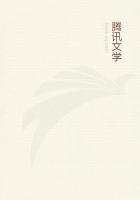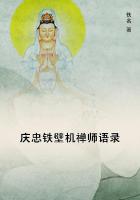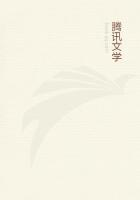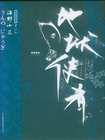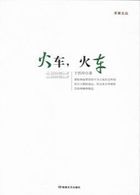The intermittent expirations which constitute laughter have, according to Dr.Hecker, the purpose of counteracting the anæ;mia of the brain, which he supposes to be brought about by the action of the joyous or comic stimulus upon the vaso-motor nerves. A smile is the week vestige of a laugh.The tight closure of the mouth in all effort is useful for retaining the air in the lungs so as to fix the chest and give a firm basis of insertion for the muscles of the flanks.Accordingly, we see the lips compress themselves upon every slight occasion of resolve.The blood-pressure has to be high during the sexual embrace; hence the palpi- tations, and hence also the tendency to caressing action, which accompanies tender emotion in its fainter forms.Other examples might be given; but these are quite enough to show the scope of the principle of revival of useful action in weaker form.
Another principle, to which Darwin perhaps hardly does sufficient justice, may be called the principle of reacting similarly to analogous-feeling stimuli.There is a whole vocabulary of descriptive adjectives common to impressions belonging to different sensible spheres -- experiences off all classes are sweet , impressions of all classes rich or solid , sensations of all classes sharp.Wundt and Piderit accordingly explain many of our most expressive reactions upon moral causes as symbolic gustatory movements.As soon as any experience arises which has an affinity with the feeling of sweet, or bitter, or sour, the same movements are executed which would result from the taste in point.
"All the states of mind which language designates by the metaphors bitter, harsh, sweet, combine themselves, therefore, with the corresponding mimetic movements of the mouth." Certainly the emotions of disgust and satisfaction do express themselves in this mimetic way.Disgust is an incipient regurgitation or retching, limiting its expression often to the grimace of the lips and nose; satisfaction goes with a sucking smile, or tasting motion of the lips.In Mantegazza's loose if learned work, the attempt is made, much less successfully, to bring in the eye and ear as additional sources of symbolically expressive reaction.The ordinary gesture of negation -- among us, moving the head about its axis from side to side -- is a reaction originally used by babies to keep disagreeables from getting into their mouth, and may be observed in perfection in any nursery. It is now evoked where the stimulus is only an unwelcome idea.Similarly the nod forward in affirmation is after the analogy of taking food into the mouth.The connection of the expression of moral or social disdain or dislike, especially in women, with movements having a perfectly definite original olfactory function, is too obvious for comment.Winking is the effect of any threatening surprise, not only of what puts the eyes in danger; and a momentary aversion of the eyes is very apt to be one's first symptom of response to an unexpectedly unwelcome proposition.-- These may suffice as examples of movements expressive from analogy.
But if certain of our emotional reactions can be explained by the two principles invoked -- and the reader will himself have felt how conjectural and fallible in some of the instances the explanation is -- there remain many reactions which cannot so be explained at all, and these we must write down for the present as purely idiopathic effects of the stimulus.Amongst them are the effects on the viscera and internal glands, the dryness of the mouth and diarrh渁 and nausea of fear, the liver-disturbances which sometimes produce jaundice after excessive rage, the urinary secretion of sanguine excitement, and the bladder-contraction of apprehension, the gaping of expectancy, the 'lump in the throat' of grief, the tickling there and the swallowing of embarrassment, the 'precordial' anxiety' of dread, the changes in the pupil, the various sweatings of the skin, cold or hot, local or general, and its flushings, together with other symptoms which probably exist but are too hidden to have been noticed or named.It seems as if even the changes of blood-pressure and heart-beat during emotional excitement might, instead of being teleologically determined, prove to be purely mechanical or physiological outpourings through the easiest drainage-channels -- the pneumogastrics and sympathetic nerves happening under ordinary circumstances to be such channels.
Mr.Spencer argues that the smallest muscles must be such channels; and instances the tail in dogs, cats, and birds, the ears in horses, the crest in parrots, the face and fingers in man, as the first organs to be moved by emotional stimuli. This principle (if it be one)
would apply still more easily to the muscles of the smaller arteries (though not exactly to the heart); whilst the great variability of the circulatory symptoms would also suggest that they are determined by causes into which utility does not enter.The quickening of the heart lends itself, it is true, rather easily to explanation by inherited habit, organic memory of more violent excitement; and Darwin speaks in favor of this view (see his Expression, etc., pp.74-5).But, on the other hand, we have so many cases of reaction which are indisputably pathological, as we may say, and which could never be serviceable or derived from what was serviceable, that I
think we should be cautious about pushing our explanations of the varied heart-beat too far in the teleological direction.Trembling, which is found in many excitements besides that of terror, is, pace Mr.Spencer and Sig.Mantegazza, quite pathological.So are terror's other strong symptoms.
Professor Mosso, as the total result of his study, writes as follows:
"We have seen that the graver the peril becomes, the more do the reactions which are positively harmful to the animal prevail in number and inefficacy.

